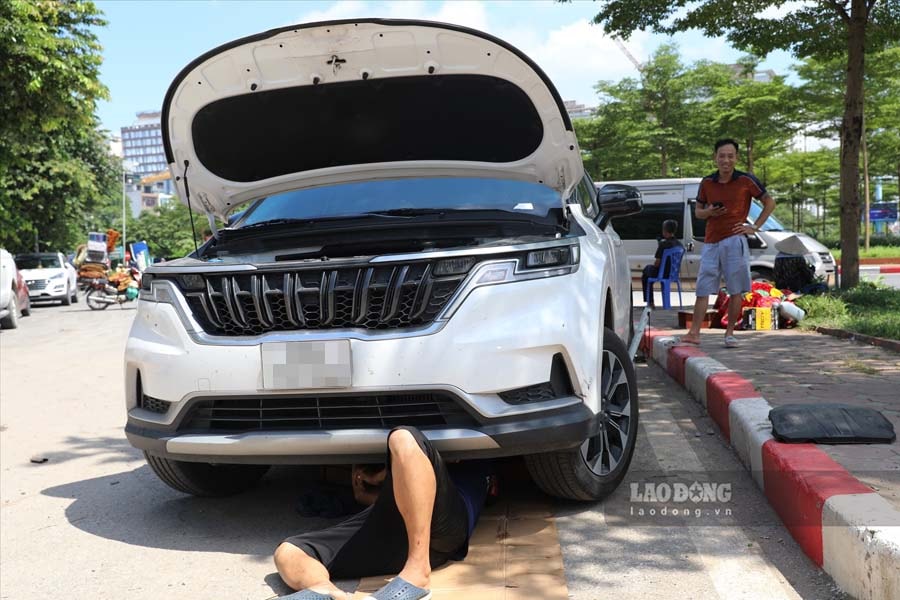Warning of serious errors that can easily appear in old cars in the summer
Summer is a tough time for all vehicles, especially used cars.

Cooling systems are easily "overloaded" on hot days
Under the impact of high temperatures, many important systems such as brakes, tires and cooling of old cars can malfunction, posing a danger to the driver if not checked and maintained promptly.
For older cars, the cooling system is the weak point that is most obvious in the summer. When the engine is operating in outdoor temperatures of up to 40 degrees Celsius, if the radiator, thermostat or coolant pump does not work effectively, the car is very susceptible to overheating.
The consequences can lead to engine stalling, piston seizure, and even cracked cylinder head gaskets, all of which are very expensive repairs.
High temperatures also increase the pressure on the radiator system, especially for cars that have been in operation for more than 5-7 years. If the radiator is old or the pipes are leaking, the possibility of the car "boiling" on the road is very high.
Used car users should regularly check the coolant level, observe the temperature warning light and absolutely not ignore the phenomenon of the temperature gauge needle exceeding the normal level when operating the car in hot weather or long traffic jams.
Brakes that are “soft” or lose effectiveness due to heat
The braking system is also an area sensitive to high temperatures. When the ambient temperature and road surface increase, combined with frequent braking in urban areas, the brake pads and discs can overheat, leading to a “temporary loss of braking”. This is especially dangerous when the vehicle is going downhill or needs to brake suddenly.
Older cars already have brake systems that wear out over time, making them more susceptible to damage. Checking the brake pad thickness, brake fluid level, and brake disc condition is a necessary step before every long summer trip.
Tires: Potential risks from burning road surfaces
One of the common causes of tire explosions in the summer is the road surface temperature is too high, can reach up to 60-70 degrees Celsius. With tires used for many years, the rubber is aged, the pressure is unstable, the risk of tire explosion increases significantly.
Used tires have much lower heat resistance than new tires. Small cracks or shoulder wear that may seem insignificant can become a failure point when exposed to high temperatures and heavy loads.
Users should check tire pressure regularly, replace tires if they are past their expiration date (usually 5 years), and avoid over-inflating tires in the summer.
Note
Summer is a “test” for the durability of every car, especially used cars. High temperatures not only reduce the efficiency of the cooling system, brakes and tires, but also pose many potential risks of accidents.
Proactive maintenance, regular inspections and being alert to unusual signs are key to ensuring safety when operating old vehicles during the hot season.


